#local cloud
Explore tagged Tumblr posts
Text
hey, everyone in epicblr and just greek mythology, question:
Does the 'fight' with Athena ACTUALLY happen in the Odyssey????? Or was it a plot point special from Jorge, cause I'm readying the Odyssey and they don't mention a fight but also athena is just... Never mentioned????? For some reason????
Help
#local cloud#epic: the musical#epic the musical#the odyssey#odysseus#greek mythology#Help people who actually know stuff
23 notes
·
View notes
Text
holy frick man, these people are insane
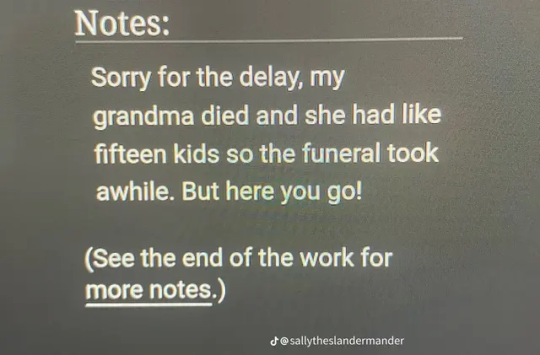
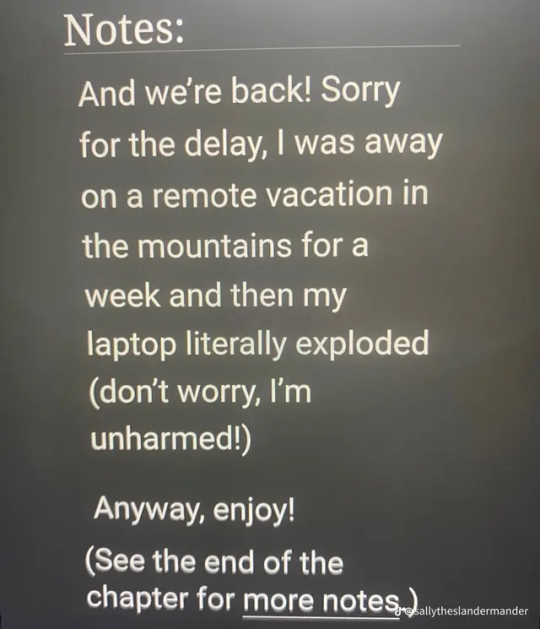
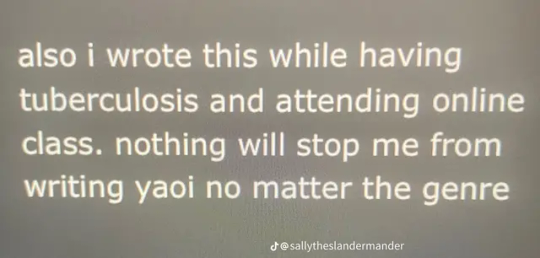



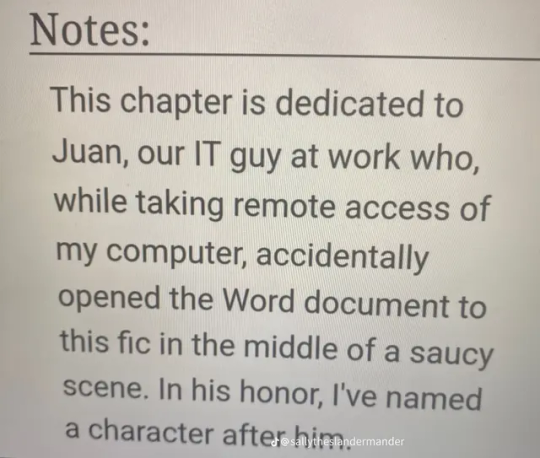
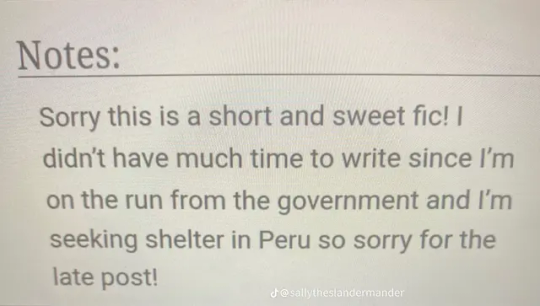


#ao3#local cloud#ao3 memes#ao3 writer#these people are insane#AO3 autors are a different breed#Those people ain't human#They deserve the best#For it
236K notes
·
View notes
Text
did a ' name the lifers' with my dad and it was the funniest.thing.ever. I started listing the names and he tried to match them ( because he didn't want to invent them names on his own)

He described Martyn as ' the blond gay one' and when told who Grian was he went ' well that's it! I got confused with the two gay blonds!'
He was CONVINCED that Skizz COULDN'T be named that because the names was too cute or smt not manly enough for him apparently ( I can't- )
Told me scott was a name of a 'perfect dude' with good looks and money and sindjdndnbdjdbrh
Also he clocked Etho IMMEDIATELY! it was the first name I said and he immediately got it right
His description of scott was ' this weird... gender null thing' when giving him the name
#local cloud#life series#trafficblr#traffic life series#life series smp#This was hilarious 10/10 would do it again
446 notes
·
View notes
Text
Hi, I'm late to everything as always but have my own "life series team ups I want to see"

I'm gonna be honest, those last three were just the ones that were left and I didn't know what to do with them so-
Ver.2 with other ones under the cut

#life series#Grian#goodtimeswithscar#jimmy solidarity#martyn inthelittlewood#pearlescentmoon#BigB#geminitay#zombiecleo#scott smajor#joel smallishbeans#lizzie ldshadowlady#mumbo jumbo#tangotek#skizzleman#bdubs#ethoslab#impulsesv#rendog#HOLY MOLY THAT'S A LOT OF PEOPLE#that took an eternity to tag lmao#traffic life series#local cloud#life series team ups
227 notes
·
View notes
Text
we all know and love the "Athena children have severe arachnophobia" but you know what we don't think about Enough? " Apollo children have severe ophidiophonia (yes I looked it up[yes it's the fear of snakes]), like I think it could be such a good trope and so underrated
#percy jackson#percy jackon and the olympians#pjo#local cloud#Rambling#Underrated trope#cabin 7#apollo kids#cabin 6#Athena kids#athena cabin#apollo cabin#I have seen exactly#Two fics#With that trope#And they were awesome
195 notes
·
View notes
Text
this specially is so important, because you can't expect for the world to change and twist to fit all Your emotion responses, somethings just aren't good for the people around you and maybe even for yourself and yea your emotions are valid but so are those of the people around you, and just like they have to accept your emotions and take care of special things you for you, you have to do the same for them
Since the OP made their post unrebloggable (and blocked me. Both actions they are well in with their right to do)
I'm going to make my response it's own post because I think the point is important
-
As someone who is autistic and has BPD and CPTSD and loads of trauma yes you sometimes need to change how you interact with others to keep people around
When I was 13 I hit the few friends I had when I was angry
I had to change that in order to keep those friendships
When I was in my early 20s if I was losing an disagreement with my husband I would threaten to kill myself. My husband told me it hurt him and was cruel and manipulative behaviour, because it was.
So I worked hard to change that to keep my relationship
It's easy to say "I shouldn't have to change for others" and that's true to an extent. You shouldn't change your interests or passions or dim your light. And you should have space to be imperfect and flawed and not have to pretend your ugly bits aren't real. But if something you are doing it causing other people harm you kinda need to change that.
That's called "living in a society"
People adapt to each other and make space for each other in their lives. You adapt to them and they adapt to you
You start being more diligent about throwing away the empty toilet roll because it really bothers them. They start warning you before they run the blender because you hate loud noises
I stopped threatening to kill myself because I was mad I was losing an argument and my husband stopped being so vocally judgemental amount media he personally dislikes
There is a certain type of person who heard the phrase "your emotions are valid" and took that to mean "my emotional reactions and my behaviour are always objectively correct because my emotions are valid and if you have an emotional response or react to what I'm doing negatively then you are wrong and you can't be hurt because my emotions are valid"
And that's a recipe for disaster
Your emotions are valid to feel. They are how you feel and there are reasons you feel the way you do
However, your reactions and behaviour are something you can learn to control and can be irrational
We live in a society and we as people change each other as we interact and that isn't necessarily a bad thing
#local cloud#Mental health is important#And not just yours but those of the people around you#Sometimes you have to learn and improve things about yourself and that's not bad#Now#I'm not saying “Change yourself!!”#I'm saying improve your attitude and actions#Because that's how life works
38K notes
·
View notes
Text

gay people
#Started with tifa and then it just spiraled#tifa lockhart#aerith gainsborough#cloud strife#ff7#Relaxed soft tifa and abs of steel tifa#Handsome butch and his ridiculous over the top bike#Local butch tries to wear a dress more at 11#my art
4K notes
·
View notes
Text
MASTER OF MOUNTAIN FUCKING ROCKS, THIS IS AWESOME THE FIGHT SCENES ARE SKNSJDJDBNENDBSBBEBE MY MEMORY DID NOT DO THIS SEASON JUSTICE
The upply and Vania are the best side characters and I LOVE THEM
#pun unintended#local cloud#ninjago fandom#ninjago#Master of mountain#cole brookstone#cole ninjago#the upply
28 notes
·
View notes
Text


A promise to cut down even the stars in the sky.
#liubai#jingliu#baiheng#high cloud quintet#honkai star rail#honkai star rail fanart#hsr#this is a closer approximation to the original chinese than what they actually localized it as#i uploaded the wrong version of the file to twitter im still crying
659 notes
·
View notes
Text
in Colombia we had a whole ass tv show for celebrating pot holes birthday's ; the thing is old af and doesn't air anymore but my mom ( who watched it a LOT) tells me it used to be hilarious

87K notes
·
View notes
Text
Cloudburst

Enshittification isn’t inevitable: under different conditions and constraints, the old, good internet could have given way to a new, good internet. Enshittification is the result of specific policy choices: encouraging monopolies; enabling high-speed, digital shell games; and blocking interoperability.
First we allowed companies to buy up their competitors. Google is the shining example here: having made one good product (search), they then fielded an essentially unbroken string of in-house flops, but it didn’t matter, because they were able to buy their way to glory: video, mobile, ad-tech, server management, docs, navigation…They’re not Willy Wonka’s idea factory, they’re Rich Uncle Pennybags, making up for their lack of invention by buying out everyone else:
https://locusmag.com/2022/03/cory-doctorow-vertically-challenged/
But this acquisition-fueled growth isn’t unique to tech. Every administration since Reagan (but not Biden! more on this later) has chipped away at antitrust enforcement, so that every sector has undergone an orgy of mergers, from athletic shoes to sea freight, eyeglasses to pro wrestling:
https://www.whitehouse.gov/cea/written-materials/2021/07/09/the-importance-of-competition-for-the-american-economy/
But tech is different, because digital is flexible in a way that analog can never be. Tech companies can “twiddle” the back-ends of their clouds to change the rules of the business from moment to moment, in a high-speed shell-game that can make it impossible to know what kind of deal you’re getting:
https://pluralistic.net/2023/02/27/knob-jockeys/#bros-be-twiddlin
To make things worse, users are banned from twiddling. The thicket of rules we call IP ensure that twiddling is only done against users, never for them. Reverse-engineering, scraping, bots — these can all be blocked with legal threats and suits and even criminal sanctions, even if they’re being done for legitimate purposes:
https://locusmag.com/2020/09/cory-doctorow-ip/
Enhittification isn’t inevitable but if we let companies buy all their competitors, if we let them twiddle us with every hour that God sends, if we make it illegal to twiddle back in self-defense, we will get twiddled to death. When a company can operate without the discipline of competition, nor of privacy law, nor of labor law, nor of fair trading law, with the US government standing by to punish any rival who alters the logic of their service, then enshittification is the utterly foreseeable outcome.
To understand how our technology gets distorted by these policy choices, consider “The Cloud.” Once, “the cloud” was just a white-board glyph, a way to show that some part of a software’s logic would touch some commodified, fungible, interchangeable appendage of the internet. Today, “The Cloud” is a flashing warning sign, the harbinger of enshittification.
When your image-editing tools live on your computer, your files are yours. But once Adobe moves your software to The Cloud, your critical, labor-intensive, unrecreatable images are purely contingent. At at time, without notice, Adobe can twiddle the back end and literally steal the colors out of your own files:
https://pluralistic.net/2022/10/28/fade-to-black/#trust-the-process
The finance sector loves The Cloud. Add “The Cloud” to a product and profits (money you get for selling something) can turn into rents (money you get for owning something). Profits can be eroded by competition, but rents are evergreen:
https://pluralistic.net/2023/07/24/rent-to-pwn/#kitt-is-a-demon
No wonder The Cloud has seeped into every corner of our lives. Remember your first iPod? Adding music to it was trivial: double click any music file to import it into iTunes, then plug in your iPod and presto, synched! Today, even sophisticated technology users struggle to “side load” files onto their mobile devices. Instead, the mobile duopoly — Apple and Google, who bought their way to mobile glory and have converged on the same rent-seeking business practices, down to the percentages they charge — want you to get your files from The Cloud, via their apps. This isn’t for technological reasons, it’s a business imperative: 30% of every transaction that involves an app gets creamed off by either Apple or Google in pure rents:
https://www.kickstarter.com/projects/doctorow/red-team-blues-another-audiobook-that-amazon-wont-sell/posts/3788112
And yet, The Cloud is undeniably useful. Having your files synch across multiple devices, including your collaborators’ devices, with built-in tools for resolving conflicting changes, is amazing. Indeed, this feat is the holy grail of networked tools, because it’s how programmers write all the software we use, including software in The Cloud.
If you want to know how good a tool can be, just look at the tools that toolsmiths use. With “source control” — the software programmers use to collaboratively write software — we get a very different vision of how The Cloud could operate. Indeed, modern source control doesn’t use The Cloud at all. Programmers’ workflow doesn’t break if they can’t access the internet, and if the company that provides their source control servers goes away, it’s simplicity itself to move onto another server provider.
This isn’t The Cloud, it’s just “the cloud” — that whiteboard glyph from the days of the old, good internet — freely interchangeable, eminently fungible, disposable and replaceable. For a tool like git, Github is just one possible synchronization point among many, all of which have a workflow whereby programmers’ computers automatically make local copies of all relevant data and periodically lob it back up to one or more servers, resolving conflicting edits through a process that is also largely automated.
There’s a name for this model: it’s called “Local First” computing, which is computing that starts from the presumption that the user and their device is the most important element of the system. Networked servers are dumb pipes and dumb storage, a nice-to-have that fails gracefully when it’s not available.
The data structures of source-code are among the most complicated formats we have; if we can do this for code, we can do it for spreadsheets, word-processing files, slide-decks, even edit-decision-lists for video and audio projects. If local-first computing can work for programmers writing code, it can work for the programs those programmers write.
Local-first computing is experiencing a renaissance. Writing for Wired, Gregory Barber traces the history of the movement, starting with the French computer scientist Marc Shapiro, who helped develop the theory of “Conflict-Free Replicated Data” — a way to synchronize data after multiple people edit it — two decades ago:
https://www.wired.com/story/the-cloud-is-a-prison-can-the-local-first-software-movement-set-us-free/
Shapiro and his co-author Nuno Preguiça envisioned CFRD as the building block of a new generation of P2P collaboration tools that weren’t exactly serverless, but which also didn’t rely on servers as the lynchpin of their operation. They published a technical paper that, while exiting, was largely drowned out by the release of GoogleDocs (based on technology built by a company that Google bought, not something Google made in-house).
Shapiro and Preguiça’s work got fresh interest with the 2019 publication of “Local-First Software: You Own Your Data, in spite of the Cloud,” a viral whitepaper-cum-manifesto from a quartet of computer scientists associated with Cambridge University and Ink and Switch, a self-described “industrial research lab”:
https://www.inkandswitch.com/local-first/static/local-first.pdf
The paper describes how its authors — Martin Kleppmann, Adam Wiggins, Peter van Hardenberg and Mark McGranaghan — prototyped and tested a bunch of simple local-first collaboration tools built on CFRD algorithms, with the goal of “network optional…seamless collaboration.” The results are impressive, if nascent. Conflicting edits were simpler to resolve than the authors anticipated, and users found URLs to be a good, intuitive way of sharing documents. The biggest hurdles are relatively minor, like managing large amounts of change-data associated with shared files.
Just as importantly, the paper makes the case for why you’d want to switch to local-first computing. The Cloud is not reliable. Companies like Evernote don’t last forever — they can disappear in an eyeblink, and take your data with them:
https://www.theverge.com/2023/7/9/23789012/evernote-layoff-us-staff-bending-spoons-note-taking-app
Google isn’t likely to disappear any time soon, but Google is a graduate of the Darth Vader MBA program (“I have altered the deal, pray I don’t alter it any further”) and notorious for shuttering its products, even beloved ones like Google Reader:
https://www.theverge.com/23778253/google-reader-death-2013-rss-social
And while the authors don’t mention it, Google is also prone to simply kicking people off all its services, costing them their phone numbers, email addresses, photos, document archives and more:
https://pluralistic.net/2022/08/22/allopathic-risk/#snitches-get-stitches
There is enormous enthusiasm among developers for local-first application design, which is only natural. After all, companies that use The Cloud go to great lengths to make it just “the cloud,” using containerization to simplify hopping from one cloud provider to another in a bid to stave off lock-in from their cloud providers and the enshittification that inevitably follows.
The nimbleness of containerization acts as a disciplining force on cloud providers when they deal with their business customers: disciplined by the threat of losing money, cloud companies are incentivized to treat those customers better. The companies we deal with as end-users know exactly how bad it gets when a tech company can impose high switching costs on you and then turn the screws until things are almost-but-not-quite so bad that you bolt for the doors. They devote fantastic effort to making sure that never happens to them — and that they can always do that to you.
Interoperability — the ability to leave one service for another — is technology’s secret weapon, the thing that ensures that users can turn The Cloud into “the cloud,” a humble whiteboard glyph that you can erase and redraw whenever it suits you. It’s the greatest hedge we have against enshittification, so small wonder that Big Tech has spent decades using interop to clobber their competitors, and lobbying to make it illegal to use interop against them:
https://locusmag.com/2019/01/cory-doctorow-disruption-for-thee-but-not-for-me/
Getting interop back is a hard slog, but it’s also our best shot at creating a new, good internet that lives up the promise of the old, good internet. In my next book, The Internet Con: How to Seize the Means of Computation (Verso Books, Sept 5), I set out a program fro disenshittifying the internet:
https://www.versobooks.com/products/3035-the-internet-con
The book is up for pre-order on Kickstarter now, along with an independent, DRM-free audiobooks (DRM-free media is the content-layer equivalent of containerized services — you can move them into or out of any app you want):
http://seizethemeansofcomputation.org
Meanwhile, Lina Khan, the FTC and the DoJ Antitrust Division are taking steps to halt the economic side of enshittification, publishing new merger guidelines that will ban the kind of anticompetitive merger that let Big Tech buy its way to glory:
https://www.theatlantic.com/ideas/archive/2023/07/biden-administration-corporate-merger-antitrust-guidelines/674779/
The internet doesn’t have to be enshittified, and it’s not too late to disenshittify it. Indeed — the same forces that enshittified the internet — monopoly mergers, a privacy and labor free-for-all, prohibitions on user-side twiddling — have enshittified everything from cars to powered wheelchairs. Not only should we fight enshittification — we must.
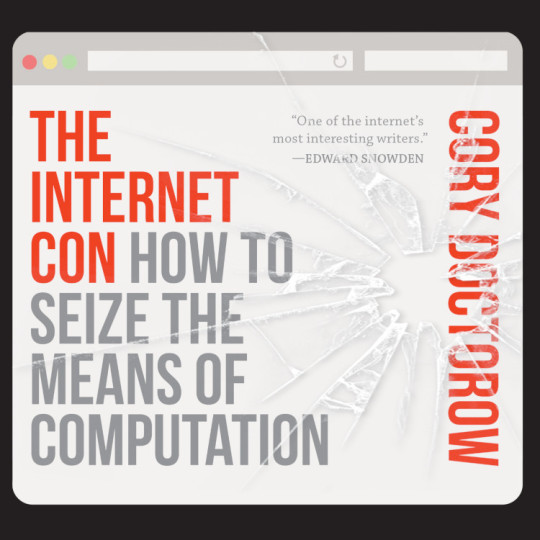
Back my anti-enshittification Kickstarter here!

If you’d like an essay-formatted version of this post to read or share, here’s a link to it on pluralistic.net, my surveillance-free, ad- free, tracker-free blog:
https://pluralistic.net/2023/08/03/there-is-no-cloud/#only-other-peoples-computers

Image: Drahtlos (modified) https://commons.wikimedia.org/wiki/File:Motherboard_Intel_386.jpg
CC BY-SA 4.0 https://creativecommons.org/licenses/by-sa/4.0/deed.en
—
cdsessums (modified) https://commons.wikimedia.org/wiki/File:Monsoon_Season_Flagstaff_AZ_clouds_storm.jpg
CC BY-SA 2.0 https://creativecommons.org/licenses/by-sa/2.0/deed.en
#pluralistic#web3#darth vader mba#conflict-free replicated data#CRDT#computer science#saas#Mark McGranaghan#Adam Wiggins#evernote#git#local-first computing#the cloud#cloud computing#enshittification#technological self-determination#Martin Kleppmann#Peter van Hardenberg
889 notes
·
View notes
Text

Wanted to make a regretevator oc inspired by themes of clouds and sleep...
This is Neala, and they are pretty nonchalant about most things. often having their head up in the clouds or in their dreams fast asleep despite the chaos that surrounds them. Very softspoken yet gentle towards others,
Neala can be found in a cloud-like obby that leads up to their living quarters. Once completed Neala will wake up from their sound sleep and join the elevator if it isn't full.
#local vampire does an art more @ 11#oc#fc#original character#fan character#regretevator#regretevator oc#dreams#clouds#character design#roblox oc#roblox#digital art#illustration
84 notes
·
View notes
Text
BUT I'M NOT DEAD YET SO I GUESS I'LL BE ALRIGHT
(Bang bang bang) But I'm Way Less Sad!
Adventure is out there, but you gotta be someone (come on, guy)
Bang! bang! bang! but it's all I have...
Oh, I'm not dead yet, so I guess I'll be alright
Ok Overture -AJR
27 notes
·
View notes
Text

Same view 2 days in a row.

144 notes
·
View notes
Text

hi, hello, what's up
#this isn't even like. an au i have; this is a cry for help#(local bog monster unable to stop thinking about superman)#warrior of light#Alisaie Leveilleur#fanart#speedpaint#i draw sometimes#Final Fantasy XIV#i've said it before but man he'd love superman's powers so much#and i think he has what it takes to float gently like a cloud
31 notes
·
View notes
Photo
this is half my life honestly




is anyone else just like, having A Time of it lately
80K notes
·
View notes